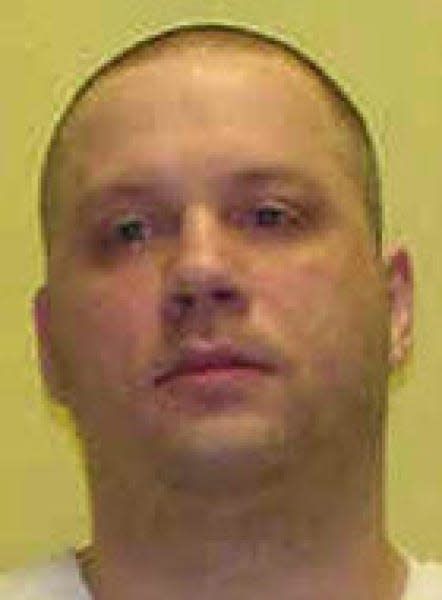What is Judge Doherty thinking? Tyrone Noling deserves justice, not more obstacles

The 11th District Ohio Court of Appeals took an extraordinary step last month. In a brief judgment entry, Judge Mary Jane Trapp essentially asked Judge Becky Doherty of the Portage County Common Pleas Court: Do you really want to proceed in this way?
The Dec. 15 entry prodded: Might you think again?
At hand is a matter involving Tyrone Noling, who has been a resident of death row for nearly three decades, wrongly convicted in the killings of Cora and Bearnhardt Hartig in Atwater Township. Noling and his attorneys seek access to the files of the prosecution. They have good reason to ask whether officials shared key evidence favorable to Noling at his trial.
The evidence goes to alternative suspects, including a man who confessed to the killings, according to his foster brother. This man lived near the Hartigs. He later murdered a woman, the state eventually executing him.

If the jury heard this evidence, might justice have been served?
Noling and his attorneys, led by the Ohio Innocence Project, have been pursuing access for more than a decade. In 2014, the 11th District appeals court held that “further proceedings are necessary” to see whether the evidence was part of the files. Yet here we are, nine years later, and still no access.
Part of the delay stems from Noling and his attorneys fighting a worthy and frustrated battle for additional DNA testing. Of late, the obstacle has been Judge Doherty, siding with the resistant prosecutor’s office.
Which gets to the question posed by the appeals court.
In September, Judge Doherty again failed to grant access. She did so in defiance of a March decision by the appeals court that restated, emphatically, the need to examine the files. In that ruling, the unanimous three-judge panel delivered a scathing assessment of Doherty’s decision-making, finding her conclusion “without substantive justification,” stating plainly that the “appellant and his expert must be granted access to the files at issue.”
The appeals court stressed that Doherty had approved funding for the expert. Yet she balks at the next logical step, the court finding her action “both strange and unintelligible,” and “fundamentally inconsistent” with its order.
Doherty did not take the cue. In her September ruling, she went beyond the bounds of the appeals court decision, raising new obstacles that promote delay. She argued for an additional hearing concerning the expert, overlooking that such a proceeding weighs the admissibility of evidence, not its discovery, which the appeals court already has established.
The judge cited problems with the course of the examination sought by Noling and his attorneys. Actually, they want a “nondestructive” look adhering to the professional standards and procedures typically followed in such situations.
Not surprisingly, Noling and his attorneys appealed the Doherty ruling. They also asked the judge to reconsider. That is the context for the December entry by the appeals court. It included a pointed reminder about how “an appellate mandate works in two ways.” First, it “vests the lower court on remand with jurisdiction.” Second, it gives the lower court “the authority to render judgment consistent with the appellate court’s judgment.”
In other words, no raising issues outside the mandate, no ignoring the clear directive of the appeals court, no showing what amounts to contempt for a higher court.
Will Judge Doherty think again? Or must another appeal proceed, lawyers filing arguments and responses, precious time sliding by?
Earlier coverage: Tyrone Noling's case would benefit from a justice system that recognizes it makes mistakes
Let’s recall the narrative of the Noling case, an innocent man under a death sentence. His conviction turned on the testimony of his co-defendants. Yet they long ago recanted. The evidence now shows their confessions were the product of corrupt interrogation techniques used by the prosecution’s investigator.
No physical evidence links Noling to the killings, including the absence of fingerprints, though investigators claim a robbery went bad. The handgun Noling possessed wasn’t the murder weapon. From the start, he has insisted on his innocence. He passed a polygraph exam.
This case has collapsed. It deserves no less than the attention of Mike DeWine, the governor with the power of commutations, pardons and reprieves, a last chance to see that justice prevails. Unfortunately, the justice system itself appears ill-equipped to redress this horrendous error.
Tyrone Noling: Justice system moves slowly in acting on claims by death row inmate from Northeast Ohio
To its credit, the 11th District appeals court is trying. In its March ruling, the court dismissed prosecution claims that the issue of access already had been explored and decided. The court concluded that following the thinking of the prosecution would be “fundamentally wrong and unjust.”
Perhaps there is nothing relevant in the files. Or maybe the evidence truly was not turned over, amounting to another grievous error by the state in this prosecution gone way wrong. Whatever unfolds, Tyrone Noling deserves the access he long has sought.
Douglas was the Beacon Journal editorial page editor from 1999 to 2019. He can be reached at mddouglasmm@gmail.com.
This article originally appeared on Akron Beacon Journal: Portage judge, prosecutors delaying justice for Tyrone Noling

